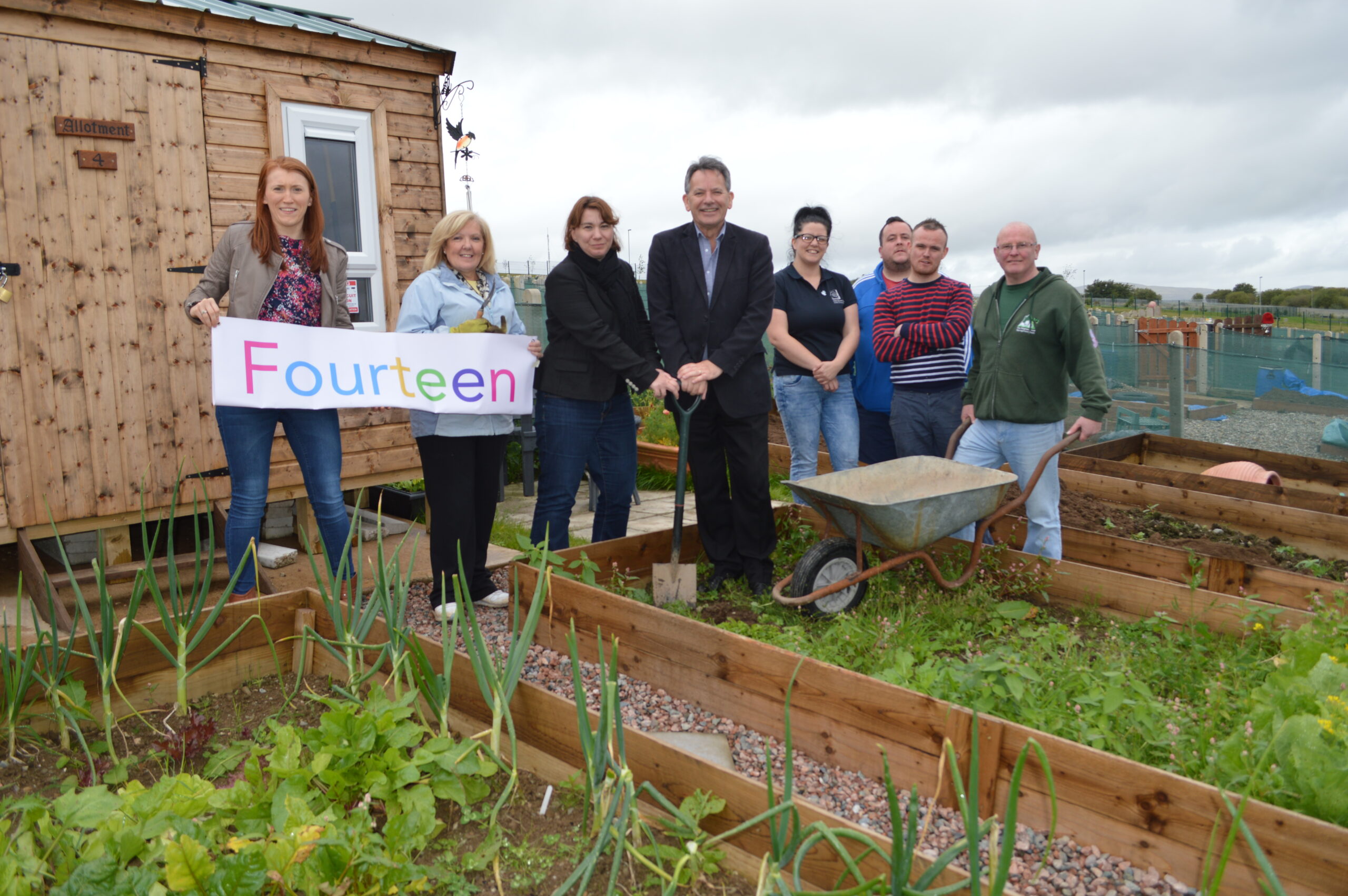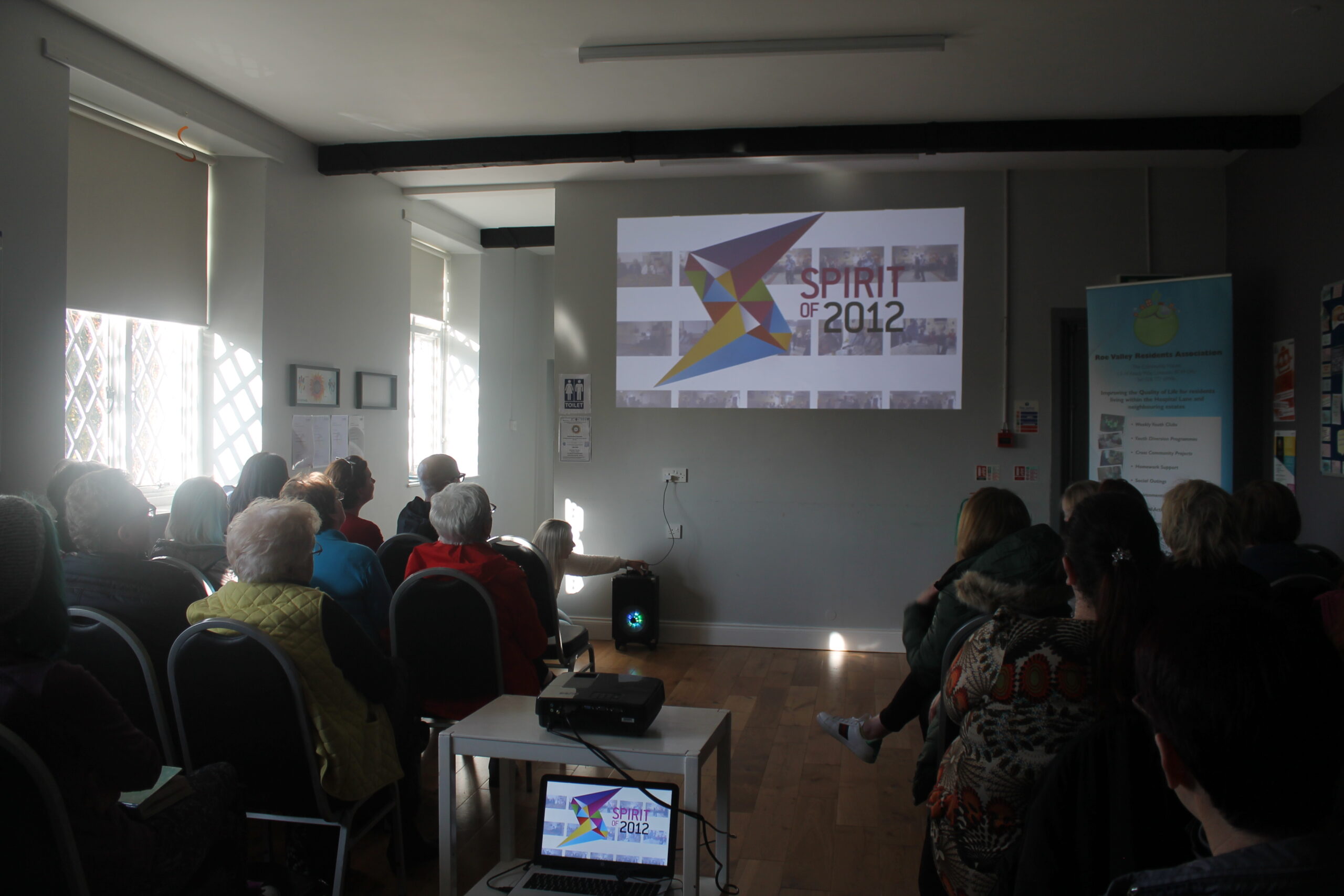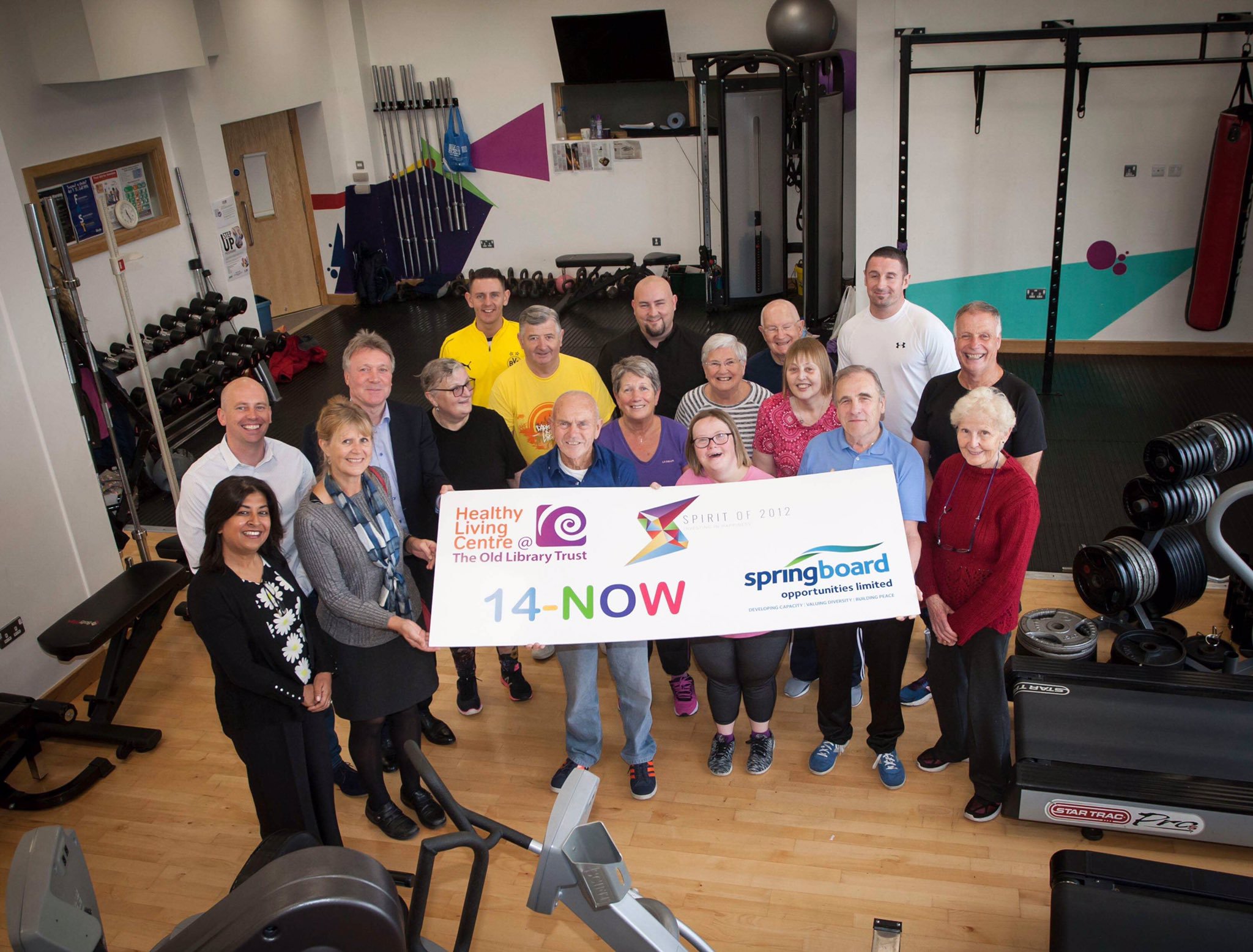We speak to Springboard's Angila Chada about how 14-NOW was forced to adapt to the COVID-19 pandemic and lockdown.

14-NOW: How Springboard’s social cohesion project became a COVID community lifeline

This is not the year we had planned. As we approach the anniversary of the first national lockdown, no doubt many of us will be in the mood to reflect. While life at large ground to a halt, Spirit of 2012’s funded projects have tried to find ways to adapt. Where many were set up to generally promote wellbeing in communities, the pandemic and accompanying lockdown threw loneliness and isolation into a sudden sharp focus.
Belfast-based Springboard Opportunities have been working to promote community cohesion across Northern Ireland since 1992. Their Spirit-funded project 14-NOW, a continuation of the initial Fourteen project, works with people across all demographics and empowers communities to work together to solve the issues that divide them. Operating in tandem with local organisations in Creggan (Derry), Monkstown and Limavady, the project has now reached over 70,000 people.
“Fundamentally, at its very heart, it’s a project designed by community, led by the community, and delivered by the community,” said Springboard’s executive director Angila Chada. “So I think it’s a very unique project. And it’s breaking new ground.”
With many communities in Northern Ireland still unpacking the legacy of the Troubles, the activities of paramilitary groups as well as the nuances of Protestant, Catholic and mixed communities all create obstacles for the work of 14-NOW. The risks of violence, drugs and gangs are as much a reality for young people in cities like Derry as the risk of isolation is for elders in rural communities like Limavady. Karen Campbell, project co-ordinator at Roe Valley Residents Association, Springboard’s local delivery partner in Limavady, said that residents are also prone to “poor mental health, lack of exercise and physical activity, low confidence and self-esteem”.
To combat this, 14-NOW introduced the Play To Grey project to encourage inclusion, personal well-being and to create an upsurge in social connectiveness, targeting seven key demographics – men, women, parents & toddlers, children, older people and disabled people. In Creggan, Springboard partnered with the Old Library Trust to introduce weekly Gaelic football session for girls and exercise and wellbeing initiatives for those living with chronic conditions. In Monkstown, Springboard works with the Monkstown Boxing Club to provide education support and mentoring for young people as well as health and wellbeing programmes for women and girls.

Adapting to the pandemic
With the advent of COVID-19 came another communal shared trauma for Northern Irish communities. As the first national lockdown took hold, the situation became dire. While the restrictions made it difficult for 14-NOW to operate, Angila concluded that “it was imperative that this provision continued.”
“They didn’t have a choice. It wasn’t like, ‘You know what? We tried that, that didn’t really go well, we’ll go on. We’ll think about that tomorrow.’ There were people who actually could not eat because they couldn’t get food, couldn’t go out of their house, couldn’t get their prescription. So, it was a very acute need.”
The first step was getting used to the idea of remote working and project delivery, which meant a steep learning curve for the staff and residents alike as they attempted to do things digitally (“Nobody had heard of Zoom before!” Angila recalled). Soon Zoom and Google Classroom were blended with regular telephone calls and doorstep visits. In Limavady, the RVRA came up with a Community Response Plan which saw staff and volunteers taking the activities out to project participants through the form of activity packs and care and essential packs. Despite these interactions being so limited, Angila and Karen understood that these interactions were “like gold dust” in a pandemic environment, particularly in the case of elderly residents.
“This has been seen as a lifesaver for some of our older residents throughout the pandemic,” Karen said. “As relationships are established, we have found that we are able to better connect with our local residents.”

Seeing success
What followed over the next few months was plenty more innovation and some key successes. In Limavady, Angila described a colour-coding system they instituted: “People would put red, orange or green in the window to see whether they needed help at that time where there was social distancing, and what they required was then provided for them, whether that was food, or collecting a prescription or whatever.” One resident receiving food said: “I do not usually eat a hot meal as I live alone and would only make myself a soup or sandwich. I have really enjoyed my dinners throughout lockdown and I am really going to miss them when they stop”.
Participants in Creggan, where the programme has a particular focus on long term health management, took part in communal doorstep exercise training with over 2,000 other locals, doing wonders for their physical and mental health. One resident, who lives with arthritis and type-2 diabetes attended regularly after being referred by her GP and later had her diabetes diagnosis reversed.
Meanwhile in Monkstown, the young people with whom the project largely works were energised into social action, wanting to do more for the elderly residents. The change across the board has been palpable, with 14-NOW’s independent evaluator confirming that the programme has seen increase in personal wellbeing across all projects, including an average increase of 25% for life satisfaction and 48% of participants feeling engaged or very engaged in their community.

Emergence
Although these changes to delivery were made through necessity, Angila admits that there are lessons Springboard can take from this period into the future – particularly the digital and remote ways of reaching out to people.
“Without a doubt, the ways in which we work and engage and connect have radically changed,” she said. “It does extend your reach. It’s all about that human connection, not necessarily human touch. The more you use [digital], the more you understand the capacity of it, and the ability to connect it and the ability to shape it to what you need.”
The residents of Creggan, Monkstown and Limavady could hardly have fathomed how important 14-NOW would have become, nor could Springboard and their delivery partners known what challenges lay ahead. Interestingly, despite the COVID-related difficulties, facing them has revealed a “different depth” to the programme. “What would have maybe taken a while to get to in relation to community cohesion happened by necessity. People felt that if they could help they wanted to do that.”
This shared adversity, it seems, has created more closely-knit communities and while the majority will be keen to get back to business as usual, Angila hopes that the selfless spirit of lockdown can transition over into normal life. “I would like to think that it wouldn’t leave you. I think it’s an opportune time. In terms of what’s happening in the world, this is the point of deep reflection. If we keep centring human connection and engagement hopefully some good comes out of it.”
Springboard and Roe Valley Residents’ Association were two of the organisations that shared their expertise for our Moment To Movement report.
